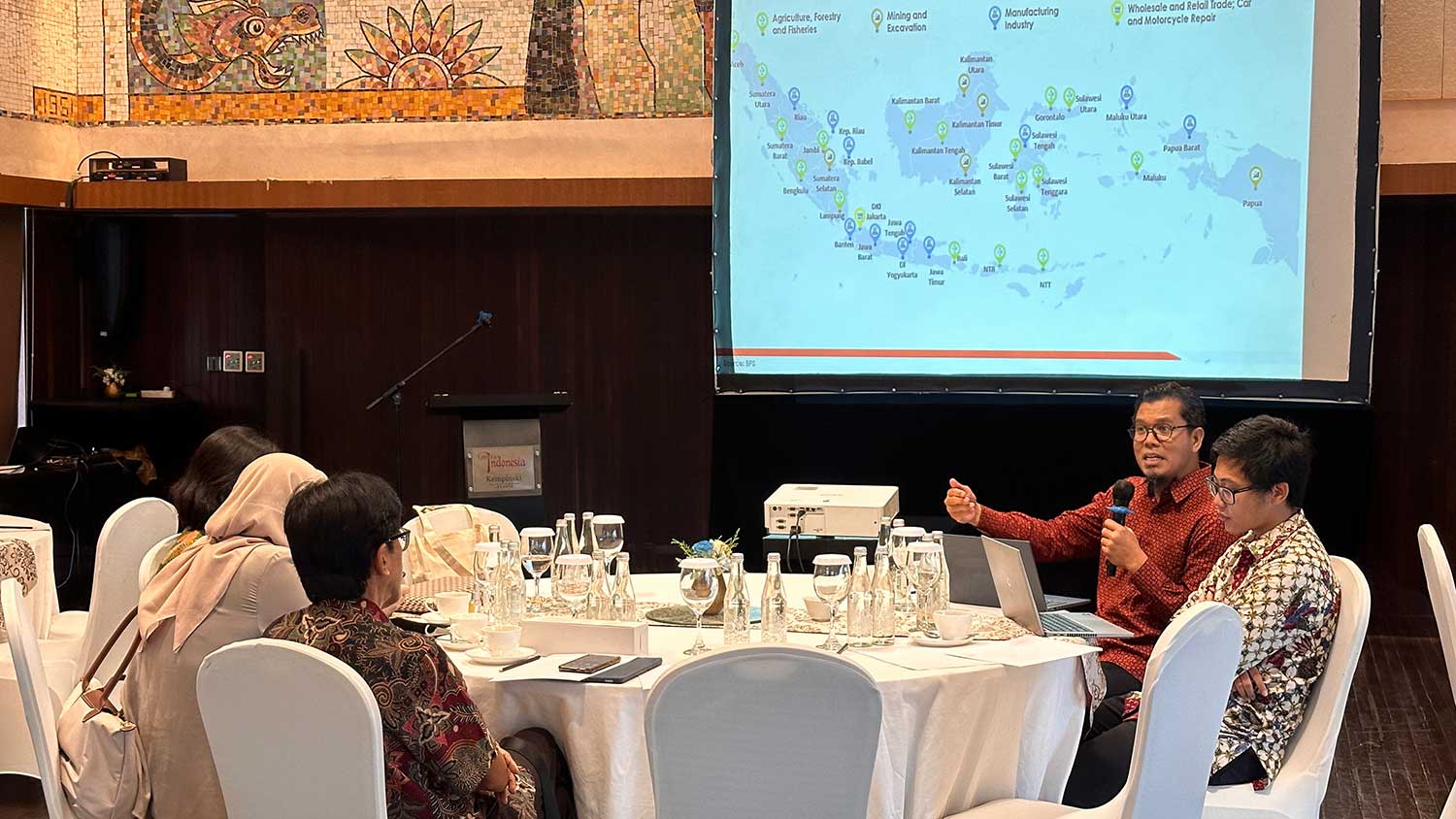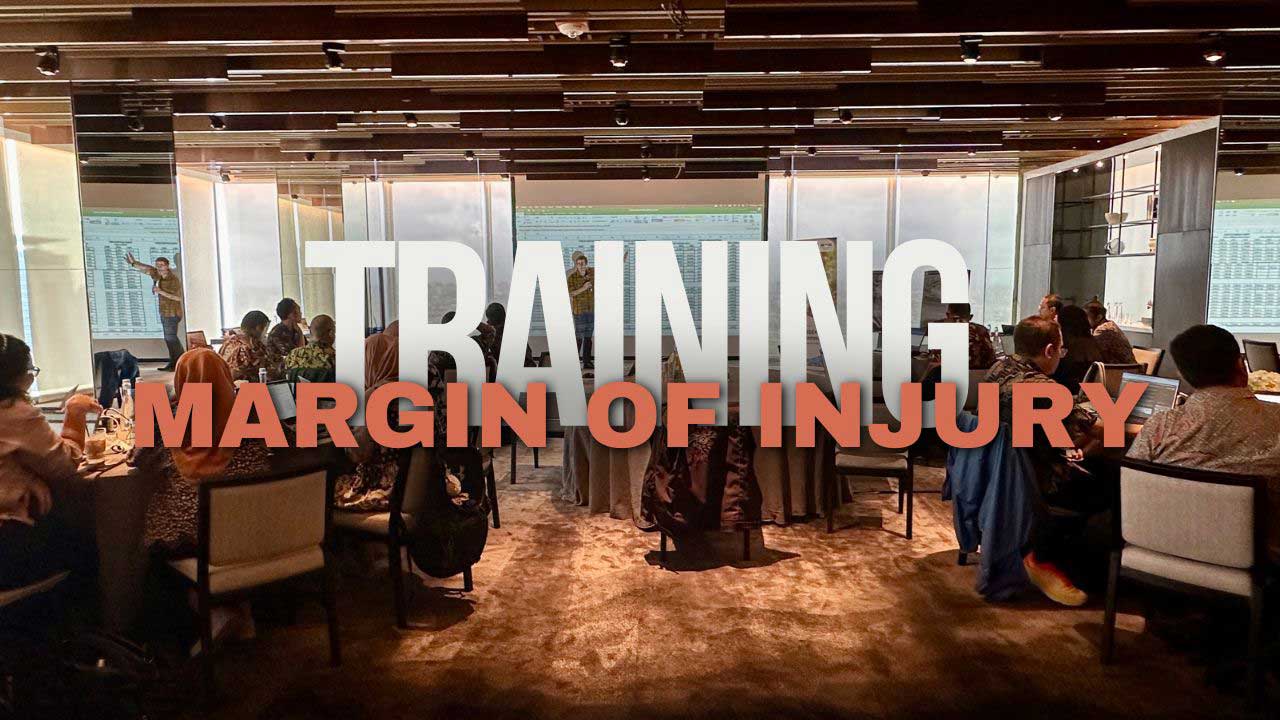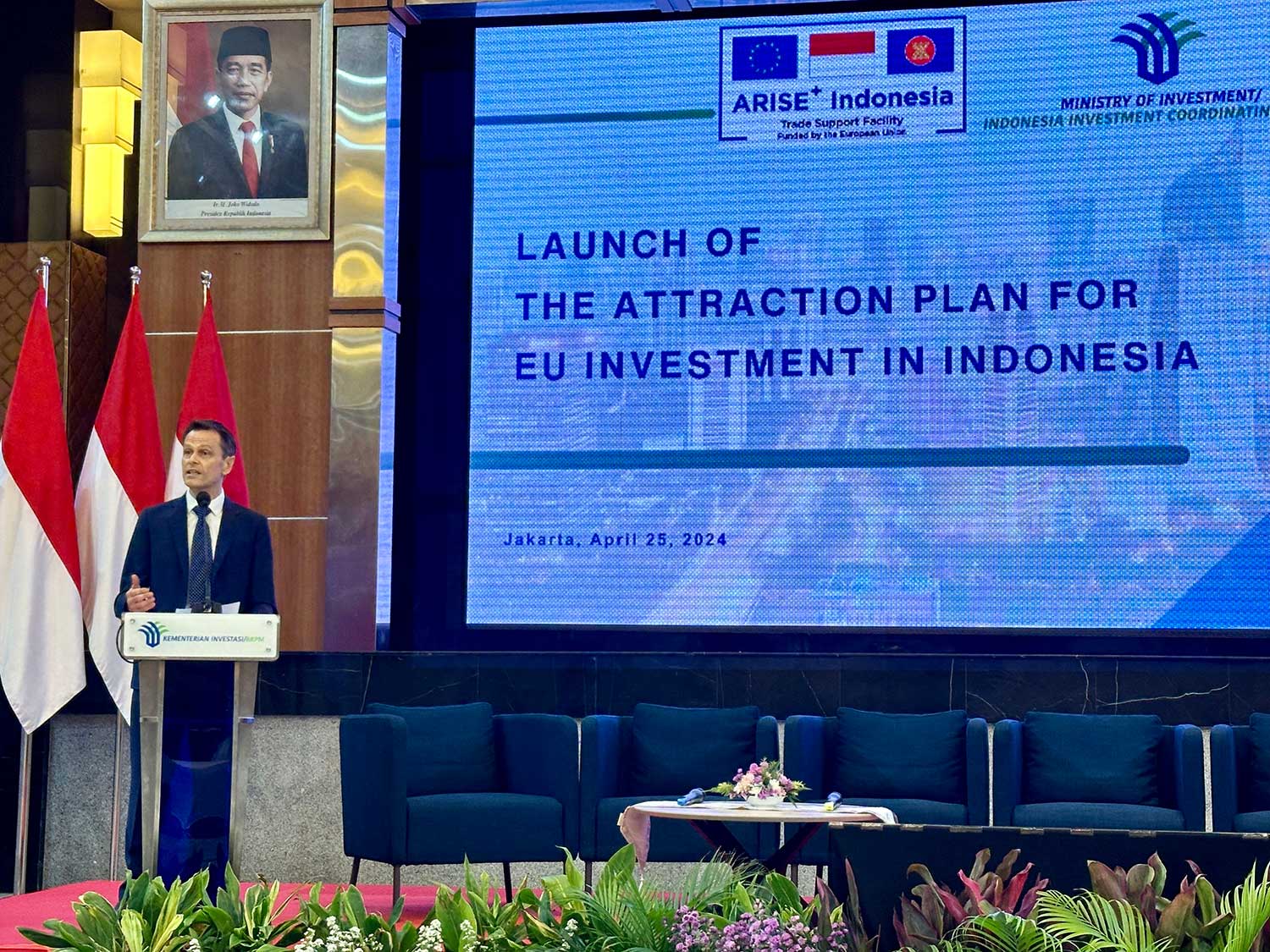
The COVID-19 became an eye-opener to realise the importance of expanding investment in the pharmaceutical sector. Due to rising demands, the government has made the pharmaceutical sectors part of the development priority sectors. Although the pharmaceutical sector in Indonesia is lucrative, a transformation needs to happen to enhance the national pharmaceutical industry, which includes research and development to encourage the production of innovative products, especially vaccines.
Against the backdrop, the Ministry of National Development Planning (Bappenas), facilitated by the EU-funded ARISE+ Indonesia, commissioned a study to assess investment opportunities and identify potential areas for the EU – Indonesia cooperation in the pharmaceutical sector especially the production of high-end products, like vaccines. This would also strengthen the country's response capacity to health emergencies such as the one caused by COVID-19.
The study was carried out by MURCI, a consulting company established in Indonesia in 2001, affiliated with Mitsubishi UFJ Research & Consulting. Mariko Nakajima, the lead researcher of MURCI, presented the initial study findings at the workshop on Tuesday (05/10).
The study found that Indonesia's pharmaceutical regulatory framework and market environment were conducive to investments in the manufacturing of generic products. Indonesia's regulatory framework was mainly considered aligned with global standards, including investigational new drug/clinical trial application, new drug applications, clinical trials, medicine manufacturing, post-marketing authorisation, medicine distribution, medicine promotion, and intellectual property. The level of human resources and infrastructure were also quite well developed.
The study recommended that to develop high-end products, a new ecosystem needed to be established. This would require the development of a comprehensive and coherent strategy based on three pillars:
- The development of a comprehensive ecosystem for R&D that would lay the breeding ground for the development of innovative products
- A supportive market environment that is conducive for investment in production and commercialisation
- An export-oriented strategy to position Indonesia as a key supplier of innovative products and create economies of scale
There is also a need to increase the number of Bio-Safety Level 3 laboratories for pre-clinical trials.
Based on the experience of other countries, such as South Korea, which has been able to position itself as a global player for the biopharmaceutical industry during recent years, the development of such an ecosystem is a long-haul process that may take between twenty to thirty years. However, while the strategy would be shaped and implemented, a few "quick-win" measures could be taken to facilitate investment decisions and send the right signals to industry players regarding the overall policy orientations. This may include the provision of government incentives for clinical trials (Korea), a liberal expatriate employment policy for the sector (Malaysia), and the promotion of innovation by supporting human resources development in the area of drug discovery (Japan).
Representatives from Bappenas, BKPM (Indonesia Investment Coordinating Board/the Ministry of Investment), Ministry of Trade, Ministry of Industry, Ministry of Health, BPOM (National Agency of Drug and Food Control), the EU Delegation, and Eurocham (the EU Chamber of Commerce) attended the workshop.




